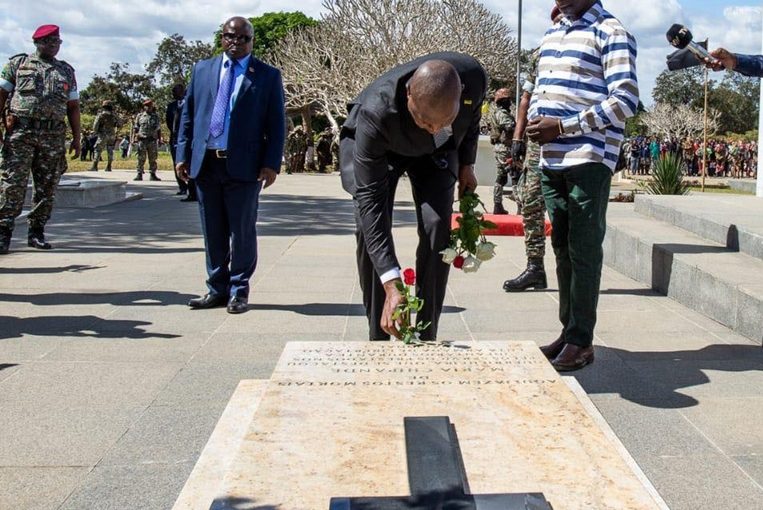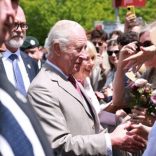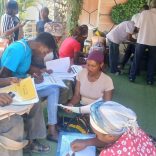Nigeria: Aiteo partners Mozambican firm Petromoc on 200,000bpd refinery
Mozambique: Chapo marks anniversary of Mueda massacre

Photo: Frelimo
“We are here once again to declare our unshakeable commitment to defend Mozambique and its people at all cost”, declared President Daniel Chapo on Monday.
He was speaking in the northern town of Mueda on the 65th anniversary of a notorious massacre, when colonial troops gunned down unarmed Mozambican protestors on 16 June 1960. Chapo regarded this as a turning point – the moment when Mozambican nationalists decided they could not win independence through peaceful means.
This was the moment when the Mueda plateau became “one of the most sacred places in our collective memory”.
“We are celebrating the courage of a people who, even unarmed, rose up to demand their right to be free of colonialism, free of the Portuguese fascist regime”, declared Chapo.
The demonstrators at Mueda in 1969 “came with words and not with swords”, he added. “They came with hope, and not with hatred. This shows that the Mozambican people was always a people of dialogue, and never a people of violence”.
But the colonial forces “replied with bullets”, opening fire “against a defenceless crowd”.
Mueda became “the altar on which was born the collective decision to liberate Mozambique”, said Chapo. It was the point at which Mozambicans “decided to fight for their independence”.
The colonial regime, the President added, “believed that brutal violence would suffocate the Mozambican people’s desire for freedom. But exactly the opposite happened. As from the massacre the nationalists understood that the peaceful roads were blocked. To win independence, it would be necessary to take up arms and organise an armed national liberation struggle”.
In Mueda, “colonialism made its biggest mistake”, said Chapo. “It took life from bodies, but did not take life from souls”. Instead, the souls of the Mueda dead “awakened the awareness of the Mozambican people to fight for freedom”.
He believed the lessons from the past were clear: “whenever possible, dialogue should precede violence and never the other way round. We should never set off from violence to dialogue, because it is only dialogue that will solve our concerns”.
Chapo warned that “where people do not listen to each other, resistance is born. That is why we signed the Political Commitment for an Inclusive National Dialogue (on 5 March) so that we can talk among Mozambican brothers and try to find out why, during 30 years of multi-party democracy, elections always end in violence”,
“Where dialogue is ignored, frustration grows”, he added. “Where violence rules, peace dies. Where there is exclusion, there will inevitably be convulsions”.
But Chapo was optimistic that “where there is dialogue, peace, harmony, reconciliation, forgiveness and inclusive national development will flourish”.
“As a country, we want to listen to all voices”, he said. “We want to build consensus, to correct imbalances, and to ensure that no citizen feels a foreigner in the country of his birth”.












Leave a Reply
Be the First to Comment!
You must be logged in to post a comment.
You must be logged in to post a comment.